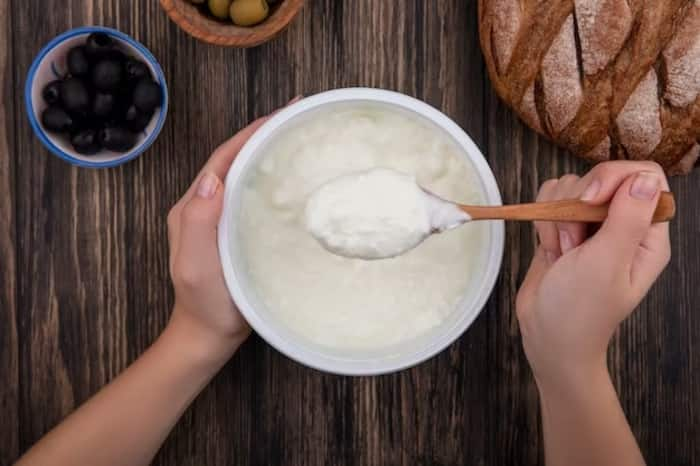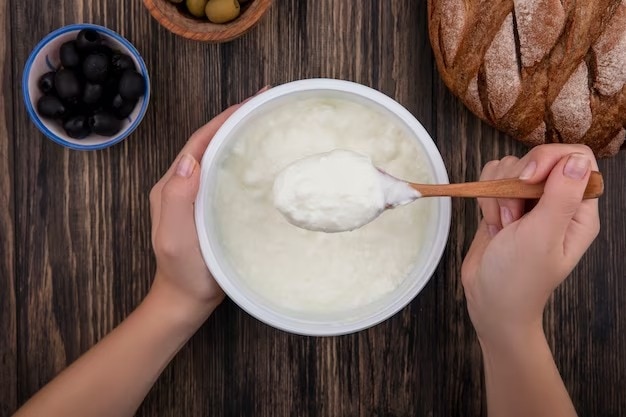Curd is made from bacterial fermentation of milk, which provides it with most of its beneficial properties. To know more about yoghurt, the myths around it and all the benefits it offers, continue reading below!
DOCTOR VERIFIED

Yoghurt, also known as curd or dahi, is a popular dairy product consumed worldwide, known for its health benefits. It boasts a diverse array of variations in taste and texture across different countries and cuisines. In the Indian subcontinent, the familiar thick, white, and mildly flavoured yoghurt is typically made from cow or buffalo milk. The formation of curd involves bacterial fermentation, endowing it with numerous beneficial properties. Probiotics generated during the fermentation process convert lactose in milk to lactic acid. Yoghurt is a rich source of calcium, vitamin B2, vitamin B12, magnesium, potassium, vitamin D, protein, and healthy gut bacteria. Yoghurt’s formation may sound technical, but many of us have witnessed our mothers or grandmothers adding a small spoon of curd to warm milk, letting it set for the next day.
So, India.com spoke to Rohit Shelatkar, VP at Vitabiotics, Fitness & Nutrition Expert to know more about yogurt, the myths around it and all the benefits it offers!
Benefits
Creamy and delicious curd stands out as one of the healthiest foods globally.
- Rich in Calcium: Yoghurt/Dahi boasts high calcium content with assured sustainable absorption. It is not only a rich source of calcium but also contains vitamin D, crucial for calcium absorption. Easily incorporated into daily diets, yoghurt can be paired with fresh fruits or supplemented with flaxseeds and sunflower seeds for an extra dose of fibre.
- Builds Immunity: The probiotics present in yoghurt contribute to building immunity, fortifying defences against various illnesses. Proven to enhance gut health, yoghurt also contains zinc and essential minerals supporting overall well-being.
- Helps for glowing skin: Yoghurt’s beneficial bacteria moisturise the skin and enhance complexion. Components like lactic acid act as exfoliators, reducing rashes and inflammation while leaving the skin smooth and bright. Face masks made from yoghurt can effectively address issues such as scars, acne, large pores, tanning, and pigmentation.
- Improves vaginal health: The beneficial bacteria in yoghurt aid in maintaining a healthy vagina by balancing its pH. Live and active cultures present in yoghurt provide the female body with a boost of good bacteria, preventing yeast infections.
Myths
- All Yogurts Are Healthy: Some Greek yoghurts or flavoured yoghurts claim to be healthy but may contain additives, colours, added sugars and gums for thickening, making it advisable to avoid them.
- Heavy to Digest: Contrary to the misconception, yoghurt facilitates digestion due to its probiotic effects.
- Lactose Intolerance: Another prevalent myth suggests that lactose intolerant individuals cannot consume yoghurt, whereas they can. Yoghurt contains live bacteria that aid in breaking down lactose, making it easy to digest. Including yoghurt in the diet can be a healthy choice for its naturally occurring calcium and probiotics.
In conclusion, yoghurt’s rich history, diverse flavours, and health benefits make it a versatile culinary delight. From calcium-rich nutrition to immunity support, yoghurt offers a tasty fusion of taste and wellness.

